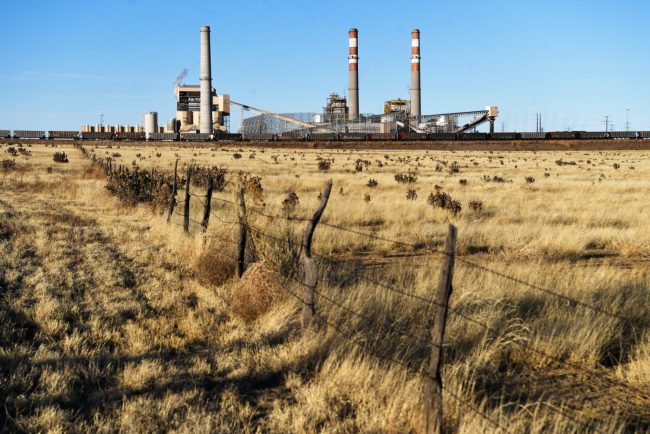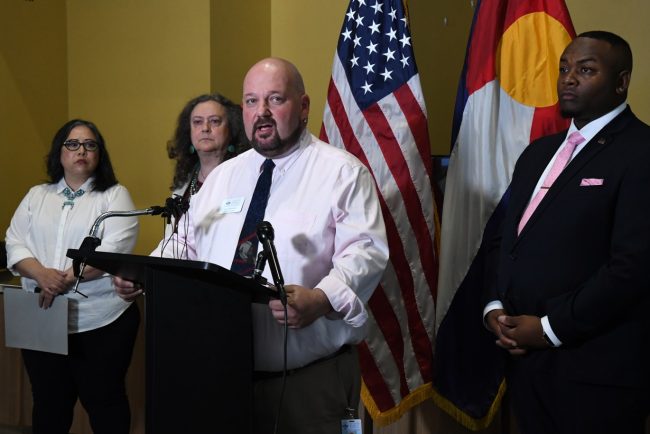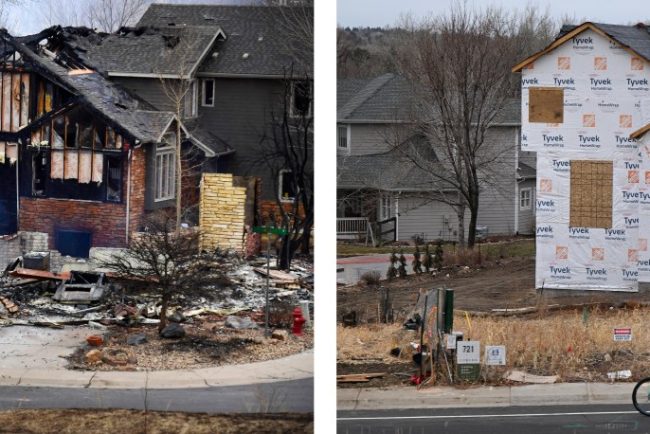
Perfect Broncos’ storytelling matched with a perfect picture (Letters)
Broncos’ storytelling matched with a perfect picture
Re: “Thriller,” Dec. 1 sports story

Cartoons: Bloomberg jumps ahead to Super Tuesday while Trump takes on Kelly and Vindman
As Democratic presidential candidates did battle this week in New Hampshire, Mike Bloomberg zipped ahead to focus on Super Tuesday states.
Cartoons
Cartoons: Rod Blagojevich, Donald Trump and clemency
On Tuesday, President Trump commuted the sentence of former Illinois Gov. Rod Blagojevich, who’s been serving time in Colorado prison.
Cartoons


Nebraska has the right to take more water, but South Platte farmers weren’t born yesterday (Editorial)
Nebraska understandably wants to finally tap into a water right it has held on the South Platte River for almost a century. Coloradans understandably are worried the plan will cut into the amount of water they can pull during the winter to save up for […]
OpinionNebraska understandably wants to finally tap into a water right it has held on the South Platte River for almost a century.
Coloradans understandably are worried the plan will cut into the amount of water they can pull during the winter to save up for their crops in the spring.
Now the matter will go to the U.S. Supreme Court to decide whether Colorado officials have violated the long-standing water-sharing compact for the South Platte River or whether Nebraska’s complaint is much ado about hoping to evade actually having to construct a billion-dollar canal to claim their water.
Fortunately, the 1923 South Platte River compact is abundantly clear and written in language that is difficult to interpret any other way. And also, fortunately, farmers relying on the South Platte River were not born yesterday.
Nebraska can build a canal that begins south of Ovid and travels east through Colorado to Perkins County to pull water during the winter months — roughly October to April — to store water to be used by Nebraska farmers during the spring growing season.
The canal — after taking into consideration upstream and downstream senior water rights — can take 500 cubic feet of water per second from the flow of the lower section of the South Platte during the winter.
So, Nebraska is entitled to the water, clearly, but only if it builds a canal.
And that is, of course, the rub.
Building a canal is going to be expensive. Nebraska lawmakers appropriated $628 million to get the project started.
But the state found landowners in Colorado unwilling to sell. An obvious development given that the canal could limit how much water the very farmers who own the land could pull from the river during the winter to store for spring.
Would you sell cheap?
Nebraska is expressly guaranteed the right to use eminent domain — the government’s power to take land against the owner’s will — to purchase land or egress for the canal. But the problem is land in Colorado is not cheap, and Colorado law demands that when eminent domain is used, a person is not only compensated for fair market value but also gets damages for the taking.
For example, a new interstate running next to a house is going to dramatically devalue that property. Colorado law requires a city or state to compensate the individual for the property taken, but also for the damages to their house. Could landowners convince a court that the taking of their land for a canal also included the taking of water from the river that they otherwise could use for crops? Maybe.
Notifying Colorado landowners of their rights and helping them organize to protect their own interests is most certainly not interfering unlawfully with Nebraska’s plan. Nebraska’s attorney general included this quote from Colorado Attorney General Phil Weiser:
“We don’t believe there’s ever been a case in American history where one state has sought to exercise the power of eminent domain in another state. That is going to raise some significant legal issues. We are preparing for them. We’re prepared to engage on the ground to let people know what rights they have.”
That quote only proves that Weiser is doing his job protecting Coloradans and informing them of their legal rights.
Nebraska may need to bring a lot more money to the project than was originally proposed, but that is not Colorado’s fault.
As for the other claim in Nebraska’s lawsuit, that Colorado has routinely been violating the compact by not sending enough water downriver during the irrigation system, we are skeptical. The initial claim from Nebraska was scant on details about how much water is being shorted to Nebraska users.
Colorado’s response, filed this week by Gov. Jared Polis and Attorney General Phil Weiser, makes it abundantly clear that the state takes meeting the compact’s obligations seriously.
“Nebraska itself has not concluded whether Colorado is impermissibly reducing flows during the irrigation season, and there are other forums to explore Nebraska’s speculation on the efficacy of Colorado’s augmentation plans,” the state’s Supreme Court brief reads.
That is, if Colorado’s plan to offset or “augment” the negative impacts of pervasive groundwater pumping along the South Platte River is failing to deliver the required water downstream, the state is happy to address it, but first, Nebraska must bring evidence and bring it to the water managers in charge of enforcing the state’s prior appropriations system.
Sign up for Sound Off to get a weekly roundup of our columns, editorials and more.
To send a letter to the editor about this article, submit online or check out our guidelines for how to submit by email or mail.

Fight back against Xcel’s rate creep (Letters)
Fight back against Xcel’s rate creep Xcel Energy continually requests rate increases, pancaking a request on the natural gas side and then, electric. The rationale always states the impact will be minimal on our monthly bills. Statements such as the increase on the residential side […]
ColumnistsFight back against Xcel’s rate creep
Xcel Energy continually requests rate increases, pancaking a request on the natural gas side and then, electric. The rationale always states the impact will be minimal on our monthly bills. Statements such as the increase on the residential side will be $4. Meanwhile, Xcel’s net profits in 2023 were $1.8 billion and in 2024, $1.9 billion.
Funny, the billing statement I just received from Xcel, compared to last year’s is up nearly 26%, even though my electric and gas use are down. Four dollars a month? No. This month is up $14.35. I hope the Public Utility Commission takes note when the next rate request comes up. Customers are not at the mercy of Xcel Energy and PUC’s acceptance of rate requests. Anyone can register a complaint at PUC’s website. Those who don’t, I assume, are okay with their rates continually increasing.
Mariann Storck, Wheat Ridge
Could AI help Denver? Maybe not.
Re: “Could city harness AI to renew trust?” Oct. 6 news story
Denver Mayor Mike Johnston would like to identify and accelerate the use of Artificial Intelligence to improve trust in government. In the current environment of local budget constraints, combined with the incessant hype of this still speculative technology, it would be strange if its use was not considered.
Most of the current success stories focus on AI as an assistant to human staff who need to carefully assess and review its recommendations to manually discard incorrect recommendations, so this is not likely to be a way to compensate for eliminated staff vacancies caused by a budget shortfall.
Moreover, if the objective is not just improving the speed of routine transactions but improving trust by addressing transparency, communication, engagement, and accountability, it seems like an unlikely class of solutions. Use of AI in government operations will necessitate accessing and using the personal information of residents. Given an AI industry that would prefer to be an unregulated free market, you would think that we need to make something like the implementation of a Colorado AI Act a foundational precursor to local government use, creating some protections to citizens from leakage, bias, and inappropriate use of personal information.
But that seems like a tough row to hoe politically, even in Colorado.
David Feineman, Broomfield
Keep our libraries a hushed retreat from the world
Growing up in Brooklyn (many years ago), it was considered proper etiquette, when in the public library, to speak in a subdued voice if not a whisper. It seems this is no longer the norm as voices are regularly at decibels, which disrupts the ambiance. The library as a “retreat” from the hectic world outside is losing this respected status. How might this observation reflect changes in our culture?
Neiel Baronberg, Denver
Sign up for Sound Off to get a weekly roundup of our columns, editorials and more.
To send a letter to the editor about this article, submit online or check out our guidelines for how to submit by email or mail.

Vote no on housing question 3A to keep Littleton from getting an annoying HOA (Opinion)
I was once one of “those people.” Until I purchased a house in my mid-thirties, I rented. I also know “those people.” Several friends rent saving to buy a home. Others own condos or townhomes. I might even enable one of “those people” by building […]
ColumnistsI was once one of “those people.” Until I purchased a house in my mid-thirties, I rented. I also know “those people.” Several friends rent saving to buy a home. Others own condos or townhomes.
I might even enable one of “those people” by building an accessory dwelling unit (ADU) above my garage to bring in some income or I could become “those people” once again by moving into a duplex or townhome after retiring.
On behalf of all of us “those people,” the just starting out 20-somethings, the young married couples saving for a home together, the retirees, the starting overs, and the singletons looking to develop their modest lot, I voted “no” on Littleton ballot measure 3A.
The proposal would amend the city’s charter to restrict land use, property rights, and changes to zoning for single-family homes and neighborhoods. The proposal would erect barriers to the building of affordable housing such as duplexes, condos, townhomes, and ADUs and make it more difficult for people to find an affordable home for purchase in Littleton or to alter their own property to meet their needs.
If I wanted a small group to dictate what I could do with my property, I would have moved into a neighborhood with a Homeowners Association and a lengthy list of mandates. 3A would HOA a whole city. No thanks.
Moreover, by amending the city’s constitution, the proposal would freeze residential land use code as it was at the beginning of this year. Changes henceforth would require a citizen-initiated ballot measure and the city council could no longer make common sense changes as needed.
Proponents would have you believe that the city is worse off for development. That couldn’t be further from the truth. I grew up just outside the city limits. Back in the 70s and 80s there was little reason to visit Littleton. That began to change as people moved into the city and commercial and residential properties were redeveloped and new developments were added.
Twenty years ago, I bought a house in Littleton and have watched as the city has gotten better and better thanks to all of the new people, new money, new ideas, and new growth. Today we have a charming, revitalized downtown, new shopping and dining options on Littleton, Belleview, Broadway, and Santa Fe thoroughfares, and more beautiful parks and bike trails. Cultural assets like the Littleton Museum, Hudson Gardens, and the Town Hall Arts Center and longtime local gems like Reinke Brothers and Romano’s Pizzeria are better than ever.
Littleton is a wonderful small city and its best days are ahead. Thank goodness no tried to stop its potential from being developed decades ago by freezing zoning and development. Littleton welcomed newcomers, all “those people” who wanted to make a new start in a little city, and the city has thrived.
Even though I currently have a single-family home, I welcome a full range of housing options and new neighbors who want to plant roots in the city I call home. That’s why I voted against 3A and urge others to do the same.
Krista Kafer is a Sunday Denver Post columnist.
Sign up for Sound Off to get a weekly roundup of our columns, editorials and more.
To send a letter to the editor about this article, submit online or check out our guidelines for how to submit by email or mail.

‘March on’ Trump protesters. Prolonged, mass protests can — and have — succeeded (Letters)
‘March on’ Trump protesters. Prolonged, mass protests can — and have — succeeded Re: “No Kings rally has lost even this sympathetic critic of President Donald Trump,” Oct. 19 commentary Krista Kafer has forgotten why we dumped the tea in the harbor in the first […]
Letters‘March on’ Trump protesters. Prolonged, mass protests can — and have — succeeded
Re: “No Kings rally has lost even this sympathetic critic of President Donald Trump,” Oct. 19 commentary
Krista Kafer has forgotten why we dumped the tea in the harbor in the first place. Revealing latent Tory sympathies, Kafer suggests the “No Kings” marches should be curtailed because the events aren’t changing any minds.
Perhaps Kafer shouldn’t be so sure about that. Did her Sunday column change any minds?
One march might not change a mind, one march does not create a movement. But as the civil rights and anti-Vietnam War movements demonstrated, prolonged protests can create political momentum and, in the end, can change minds. The Voting Rights Act is one example of that. You know, the same Voting Rights Act the Trumplicans want to dismantle.
There are so many reasons to protest Trump. No Kings marchers attend for different reasons.
March on, my brothers and sisters.
Barry Noreen, Denver
For those who claim the No Kings demonstrations are worthless and ineffective, look at America during the last 110 years. Women fought and won the right to vote through peaceful demonstrations. The protesters were confronted with many being sent to jail. Men were directed to prohibit their wives and daughters from participating in the marches with men physically assaulting the protesters. Rights for women prevailed.
In the 1950s and 60s, protesters marched for civil rights for people of color, often being met by extreme violence perpetuated by racists and bigots. The Civil Rights Act was passed because of the bravery of those demonstrators. Today, the No Kings protesters face accusations from the GOP that No King demonstrators are paid, violent domestic terrorists. If you look at images of yesterday’s rallies, you will find grandmas and grandpas, sometimes using walkers, parents, and children chanting they love America and loudly reminding all that these demonstrations is what democracy looks like. Yes, the demonstrators stand behind antifa, antifascism. Antifa is NOT a ‘dark’ organization. It is taking a hard stand AGAINST fascism.
My question to those who criticize these marches, why aren’t you a follower of the antifa belief? If you disagree with antifa, then you support fascism, dictatorship, and the abolishment of our Constitution. The millions of people who marched and rallied on Saturday are true patriots who are demonstrating to protect our country, our democracy, and our Constitution.
Gary Johnson, Greeley
Krista Kafer is the kind of Republican I can respectfully listen to. I don’t always agree with her, but she often offers perspectives that are worth considering. But her criticism of the No King’s rally was disingenuous. Did she really think millions of people gathered with the idea they were going to convert MAGA supporters? Did she think those at the rally thought U.S. Speaker Mike Johnson was going to see the crowds and get the cojones to become a leader rather than a minion?
Saturday’s rally sent a message of hope. It was a boost to battered spirits that we are not alone. It is elevating to realize there are many kinds of Americans who share the idea America should not cave to the ugliness and self-interest of people like Donald Trump or Stephen Miller.
Reasonable people know good people can do bad things and bad people can do good things. If the Gaza peace deal survives, kudos to Trump for giving it impetus, but that doesn’t erase the genuinely destructive effect of his domestic policies. The No Kings protest was a joyful acknowledgement that there is still a lot to love about America, and it was out in force on Saturday. It was a shout, “We still have hope!” The fact that Kafer didn’t get that says more about her than about the protesters.
A. Lynn Buschhoff, Denver
I have found myself agreeing with much of what Krista Kafer has said recently, until Sunday. In her opinion piece, she argued against the No King Rallies by saying “Trump is no king”, which most people would agree is technically a true statement. However, a king governs absolutely, ignoring the rule of law and ignoring all democratic principles. This is exactly the way Trump is attempting to govern. All his social media posts last Saturday, showing himself garbed as a king, are representative of how he sees himself and his unlimited power.
The No Kings rallies all over the world were in support of the philosophy that we don’t want someone leading the United States who thinks they can govern like a king, ignoring all our democratic principles and laws.
Lynne Montague-Clouse, Highlands Ranch
I agree that someone could have come up with a more pertinent title for the No Kings event. But please, don’t disparage the entire event.
Yesterday, I attended my first No Kings rally, and I can say it was empowering to see so many like-minded people getting together to make a statement. I felt empowered to do more. These events are extremely important, especially in an age where most people sit at home looking at screens. These events are a very visible and tangible statement of how people think and feel, and have been since at least the 1960s. Ms. Kafer asks, “Did this event change a single mind?” Of course it did! It changed my mind!
Bart Cox, Denver
Kings employ rule by fiat, edict, intimidating shows of force and acts of retribution, along with personal attributes of arrogance, hubris and entitlement. These characteristics are clearly in practice and on full display by President Trump. Their enumeration will not all fit on a protest placard. Neither will the admitted litany of President Trump’s negatives listed in Krista Kafer’s Sunday column.
She mistakes the vast number of protestors as having the same platform as she does for elongated expressions of their positions of discontent.
Criticizing the expressions used by the throngs of protestors is shortsighted. A column in a newspaper is not needed to remind Trump and his minions that while we hear him declare he is not a king, the tried-and-true axiom “actions speak louder than words” is wholly applicable.
In statistics, there is a widely accepted term known as a representative sampling. Based upon this statistical application, the numbers in the streets on Saturday depicted a larger level of discontent with the Trump administration. While we applaud the Middle East’s progress towards a peaceful existence, between the tens of millions there, as we approach 400 million here, we are as concerned with our own freedom as we are with theirs.
Bill Starks, Arvada
Disingenuous has never been more applicable than with Krista Kafer’s assertion that “No Kings” lacked clarity. She knows the gaudy gold fittings and lack of the symbolism of royalty are not the issue. It is his actions against the citizens of his own country. The good he has done with Israel and Palestine is not going to be the salve that binds him to his clear-eyed and fearful detractors.
She is intentionally obtuse when she claims the lack of regalia is more relevant than Mr. Trump’s moves toward authoritarianism and a unitary presidency than his actual deeds of sending masked police into cities with the military, people being swept off the street and their whereabouts unknown, the wholesale termination of the employment of persons perceived to be disloyal, the unctuousness he demands of his minions and his threats to other politicians, even in his own party.
Well, Ms. Kafer, if that doesn’t qualify him to be in the ranks of the Putins and Maduros, I am not sure what more evidence you need. If you do not understand this, then I guess you are not paying attention. So, just keep laughing at the “overwrought” who are concerned and marching for our future.
Mary Wamsley, Denver
What did No Kings accomplish?
Kafer is lost. The No Kings march was not about Israel or any of Trump’s policies, but his tactic to act in a belligerent and autocratic manner to sweep power from Congress, corporate America, universities and states. The conceptual connection between the name “No Kings March” and Trump’s first months back in office should be obvious.
Ms. Kafer never addressed her central question, so I will:
• Informed citizens. We learned the incremental shift in our democracy to an autocratic and dictatorial form of government.
• Galvanized patriots. Division and chaos are Trump’s tools. This march brought unity and a vision for millions of patriots marching towards the 2026 elections.
• Therapeutic outlet. Many have experienced shock and awe, anger, bewilderment, depression, and even stained relations with family and friends from Trump’s charades. This march reminded us that we are not alone and there are groups to join and actions to take.
• Motivating force. Within 24 hours of the FOCO march, I donated $100, flaunted my No Kings badge at the CSU homecoming game, and wrote this response.
• Messaging. Seven million patriots sent a loud message of unrest to Democrats, Republicans and independents. The honeymoon is over, and we will not cower before an authoritarian regime.
• GOP embarrassment. Trump and his jesters look like fools here and abroad for their lies and belittlement of this “we the people” march.
• Momentum. The 2026 marches will be bigger and in every gerrymandered district!
Glenn Haas, Fort Collins
I looked at your online photo of tens of thousands of “No Kings” protesters in jaw-dropping disbelief. The throngs outside the state Capitol dome, gleaming in the sunshine, were reminiscent of the civil rights march on Washington in the ’60s, or at the very least, a Broncos Super Bowl win. I was so happy, I cried.
Then I turned to Perspective and saw the huge, page two headline on Krista Kafer’s column putting down the protests and my bubble burst. I was transported back to the grim reality of the many Americans who still support the tactics of a dictator. It isn’t hyperbole to say that.
I wrote this for the same reason people were demonstrating — not to have an immediate impact, but to support and validate other people like myself.
Beverly Bennett, Aurora
Krista Kafer decided to avoid Saturday’s No Kings rallies, because she had to look up the purpose of the rallies on a website.
How precious.
It’s tempting to paraphrase the Declaration of Independence — e.g., obstructing the administration of justice; dissolving our legislature; refusing his assent to our laws; affecting to render the military superior to civil offices; imposing taxes without our consent; quartering large bodies of armed troops among us — to paint the parallels between the Trump administration and King George III.
It is sufficient to observe Ms. Kafer’s extenuating apologies notwithstanding, Trump thinks of himself as king. He posted a crowned image of himself flying a fighter jet emblazoned with “King Trump,” and dumping sewage, sludge, or feces on a No Kings march. His disdain for Americans is palpable.
Randy Livingston, Denver
Regarding Krista Kafer’s op-ed, where she does not know what “No Kings” means, I would direct her attention to Justice Sonia Sotomayor’s dissent in Trump v. United States, where she said, “the relationship between the President and the people he serves has shifted irrevocably. In every use of official power, the President is now a king above the law.”
Mark Risner, Englewood
Sign up for Sound Off to get a weekly roundup of our columns, editorials and more.
To send a letter to the editor about this article, submit online or check out our guidelines for how to submit by email or mail.

The government shutdown will cause Colorado families to go hungry (Opinion)
Today, the federal government shutdown is threatening food access for over 600,000 Coloradans, half of whom are children, who rely on SNAP to get the food they need to be healthy and thrive. Starting November 1, SNAP food access will be cut off because of […]
ColumnistsToday, the federal government shutdown is threatening food access for over 600,000 Coloradans, half of whom are children, who rely on SNAP to get the food they need to be healthy and thrive. Starting November 1, SNAP food access will be cut off because of the federal government shutdown.
Having enough food is essential for kids to grow and learn in school, for parents and families to work, and to maintain health and wellbeing. Holding SNAP food access is a severe threat to the 600,000 Coloradans who depend on SNAP to fight hunger, improve their health, and escape the grip of poverty.
The ripple effect of this funding freeze touches many parts of our state and our economy. For every $1 from SNAP that is spent, $1.50 goes back into Colorado’s economy. 10,000 grocery jobs across Colorado are supported by SNAP. Retailers will experience a sharp decline in spending, with smaller, local businesses bearing the brunt of this impact. And as we trickle up the chain, local food providers, including our farmers and ranchers, are expected to see a drastic decline in demand for their products due to an inability to use SNAP benefits.
These are not state dollars, they are entirely federal, meaning Colorado cannot backfill this critical support. A staggering 50% of SNAP recipients are children, 10% are elderly, and 15% are individuals with disabilities. These are our neighbors, our children, and our most vulnerable citizens, now facing an uncertain, hungry, future. To help make sure no one starves in Colorado, Gov. Jared Polis requested $10 million to help food banks and pantries feed more people during the federal shutdown but in the long run the state cannot fund this federal initiative. The governor also asked individuals to help support food for families at www.feedingcolorado.org/donate.
We are hearing heartbreaking stories from some of those neighbors who rely on SNAP food access — stories that paint a stark picture of the impossible choices they now face because their November assistance is being held.
This isn’t just about an empty pantry; it’s about the erosion of basic security. People are already telling us they will have to skip meals just to stretch their budget. Even worse, the limited funds they do have are being pulled away from essentials. Money set aside for a child’s school uniform, for gas to get to work, for a prescription, for heating homes, or even for rent — it’s all on the chopping block. Coloradans should never have to make choices between a hungry child or a roof over their head.
While this situation continues, we are calling on Coloradans and Colorado businesses to help their neighbors. The most effective way to do that right now is to donate financially to food banks. These organizations have tremendous purchasing power when compared to you and I, and every dollar donated stretches much farther. We can all give what we can to help those in need.
The negative impacts are clear, but it is reassuring to know that the Colorado Department of Human Services is prepared to act swiftly once funds become available again. However, ensuring continued access to SNAP is an essential investment in the health, well-being, and economic stability of Coloradans and the state as a whole.
Michelle Barnes is the executive director of the Colorado Department of Human Services.
Sign up for Sound Off to get a weekly roundup of our columns, editorials and more.
To send a letter to the editor about this article, submit online or check out our guidelines for how to submit by email or mail.

These DPS incumbent candidates don’t support school choice (Opinion)
As former members of the Denver Public Schools Board of Education, we have long respected the complexity and responsibility of serving on the board. It is a demanding and often thankless role. Yet, the gravity of our district’s challenges and the content of the Denver […]
ColumnistsAs former members of the Denver Public Schools Board of Education, we have long respected the complexity and responsibility of serving on the board. It is a demanding and often thankless role. Yet, the gravity of our district’s challenges and the content of the Denver Post editorial from September 28, 2025, compel us to speak out.
The editorial referenced “some candidates running for the Denver Board of Education who would rather see the district’s world-class lottery system go away,” and accused them of wanting to “keep the best schools in Denver a secret.” Let’s be clear: the three incumbents — Scott Esserman, Xóchitl Gaytán, and Michelle Quattlebaum — have led efforts to dismantle school choice in Denver. They have also collaborated with the Superintendent to only publicize the positive results and limit public access to negative school performance data especially among low income students. The public deserves to see the disaggregated achievement by race, ethnicity, and income.
Despite campaigning on promises of transparency and accountability, the incumbents’ actions have too often produced the opposite. The current board has made critical decisions behind closed doors, minimized authentic community engagement, and failed to deliver measurable improvement for Denver’s students.
This November, Denver voters have the opportunity to elect four new board members who will restore integrity, transparency, and student-centered decision-making. These candidates–Mariana del Hierro (District 2), Caron Blanke (District 3), Timiya Jackson (District 4), and Alex Magaña (At-Large)—represent the best of Denver’s civic and educational leadership. Two are accomplished educators, and two bring executive management experience
rooted in community service. Collectively, they are prepared to govern responsibly and help rebuild a system that prioritizes student success above all else.
The data tell a sobering story. While 75% of white students in DPS are proficient in reading, only 30% or fewer Black, Latino, and low-income students meet grade-level expectations–a gap that continues to widen. In mathematics, the disparities are even starker, with up to 80% of students from these groups performing below grade level.
Standardized scores are not the only indicator of educational health, but they are an important one. Denver Public Schools has not returned to pre-pandemic levels of achievement and, alarmingly, has no clear plan to get there. The current leadership has failed to set ambitious goals, measure progress transparently, or hold itself accountable for student outcomes.
It is deeply concerning that a board responsible for $1.5 billion in taxpayer funds, 90,000 students, and 15,000 employees demonstrates so little urgency or accountability. Under this leadership, Denver students have fallen even farther behind academically, socially, and emotionally.
This election offers a turning point. Denver voters can choose leaders who bring urgency, competence, and a clear sense of responsibility to public education. Blanke, del Hierro, Jackson, and Magaña are ready to collaborate with the Superintendent on an aggressive, student-centered plan to raise achievement and restore public confidence.
The pandemic presented an opportunity to reimagine a district that works for every child. The current board–and the incumbents seeking reelection—failed that test. Denver cannot afford another generation of lost potential.
This November, we urge voters to support new leadership committed to transparency, accountability, and the belief that every Denver student deserves the opportunity to learn, thrive, and succeed.
Elaine Gantz Berman, Theresa Peña and Mary Seawell are all former elected directors of the Denver Public Schools Board of Education.
Sign up for Sound Off to get a weekly roundup of our columns, editorials and more.
To send a letter to the editor about this article, submit online or check out our guidelines for how to submit by email or mail.

Destruction at the White House (Letters)
Destruction at the White House Re: “Trump said he wouldn’t touch the East Wing, then he tore it all down,” Oct. 23 news story I don’t get it. The White House doesn’t belong to Donald Trump; it belongs to the people, our nation. Despite this […]
LettersDestruction at the White House
Re: “Trump said he wouldn’t touch the East Wing, then he tore it all down,” Oct. 23 news story
I don’t get it. The White House doesn’t belong to Donald Trump; it belongs to the people, our nation. Despite this ballroom and tearing down of the East Wing being paid by donors and not us taxpayers, what gives him the right to do this without Congressional approval? Where is the outrage about him tearing down this historical part of the White House? The photos are horrifying and sad. Can someone explain? Because I just don’t get it; so I remain outraged!
Kathy Derrick, Denver
From the front lines of the No Kings rallies
I participated in the recent No Kings protest in Broomfield. I am 84 years old. My first vote for president was in 1964 (Johnson vs. Goldwater), and I have voted in every election since. I have never been so frightened about the direction our country is going, as I am now.
During the current crisis, we have discovered that the Constitution has a fundamental flaw: It does not adequately protect us against evil people in our government. MAGA currently controls all three branches of government. The U.S. Supreme Court has given Donald Trump carte blanche to do anything he wants. There are no “guardrails.” The Republican Party currently consists of people who have drunk Trump’s Kool-Aid and people who are too frightened to stand up to him.
Some people have urged us to “listen to each other,” but MAGA is unlike any political movement we have ever experienced. There is no use in talking to people who have drunk the Kool-Aid. They think it’s perfectly fine for Trump to govern like a dictator, take revenge on his political enemies, and stifle dissent by sending troops to “uncooperative” cities. They think people like me are “terrorists” who hate America. Their world is upside-down. This is not a normal Republican-Democrat argument. It is a struggle to save our democracy. My only hope is Trump’s tariff and immigration policies will drive us into an economic crisis, at which point sane people in the Republican Party will develop the courage to stop him.
James W. Craft, Broomfield
I am still basking in an amazing glow of loving acceptance, from the No Kings rally. I stood facing the northbound traffic on the roundabout with a sign clipped to my chest that read “INDICT TRUMP FOR TREASON.” It was a simple, honest statement without malice or anger. What blew me away was the positive reactions for two hours; cars honking, thumbs up, a touch of the hat, a nod of agreement, a friendly wave, people meeting my gaze with a smile and an “oh yeah.”
I felt gratified that Trump’s government was shut down, grateful for the reprieve from the Big Beautiful Bill that soon-to-be ex Rep. Jeff Hurd voted for. I hope it will be paused for three years to minimize the damage and pain. This feeling of unity, recognition and purpose No Kings brought was much richer and I need to thank the community for their unity of mind to justice.
John Hoffmann, Carbondale
I keep reading that MAGA and Trump are saying the protesters marching against them are “paid” protesters. I didn’t get a dime for protesting on Saturday. Can someone let me know where I might get a check for my efforts? As long as I’m protesting, might as well make a buck too.
Gary Bagstad, Denver
Speaking truth to Christian nationalism
Re: “People of all faiths must refuse to stay silent,” Oct. 18 commentary
It was refreshing to read the joint commentary of the Reverends Vanderpol, Rejouis and Rabbi Greene about Saturday’s “No Kings” nationwide protest. Their affirmation of the truth that every person “holds inherent worth and dignity” is in contradistinction to the Christian nationalism that is foundational to Project 2025, on which the Trump administration is being fashioned.
David Schroeder, Golden
Sign up for Sound Off to get a weekly roundup of our columns, editorials and more.
To send a letter to the editor about this article, submit online or check out our guidelines for how to submit by email or mail.

Vote “No” on Denver’s bonds to reject irresponsible debt (Letters)
Vote “No” on Denver’s bonds to reject irresponsible debt After reading my ballot, I researched previous bonds that were passed by voters. The Rise Denver bond in 2021 was $260 million, and the Elevate Denver Bond in 2017 was $937 million. I added up the […]
LettersVote “No” on Denver’s bonds to reject irresponsible debt
After reading my ballot, I researched previous bonds that were passed by voters. The Rise Denver bond in 2021 was $260 million, and the Elevate Denver Bond in 2017 was $937 million. I added up the 2A to 2E bonds this year, and the total is up to $950 million. The total for all of these bonds adds up to more than $2 billion.
The debt repayment for the current bonds is about $1.9 billion. The ballot states, “without imposing any new tax,” but that is not completely correct. The reason is that all these bonds are paid through commercial and residential property taxes in Denver County. The mill levy could go down if voters say no, and if voters say yes it also could have to increase to pay for these billions of dollars if property values decrease. Denver County is where I live, and expenses have gone significantly higher this year. Why do we keep adding to the bond debts? We should not vote to increase the county’s debt.
Pete Hackett, Denver
Denver clerk errs in leaving out information on ballot issues
Did I hear that correctly?
Denver’s “Ballot Issue Notice” does not provide any information about three matters: 2F, 2G and 310. I called Denver’s Clerk and Elections Office to ask why the omissions. I was told two things: 1) Those three ballot issues have no fiscal impact on government, so applicable law does not require their inclusion in the notice. 2) Due to “budget cuts,” it was decided not to address them in the notice. Then, I was informed that I could garner information about them at denvervotes.org.
Denver voters expect the notice each year to address all matters on the ballot. The current notice does not highlight that 2F, 2G and 310 are not included and does not highlight denvervotes.org as a source of information about them.
I have no way of learning how much money was “saved” by excluding these ballot matters. What I do know is that it would have been money well spent.
Vic Reichman, Denver
Trump’s cuts to education funding risk America’s future
Re: “Federal government’s cuts cost state colleges millions,” Oct. 9 news story
As an educator, I was saddened to read: “Trump administration cuts grants to Colorado colleges serving high percentage of diverse students,” October 9.
Every American, regardless of race, gender or religious persuasion, should have the opportunity to realize their natural potential via education. Yet, there are wide swaths of America that are not properly educating students and where students are just unable to succeed for economic or other reasons. As a result, America is not producing sufficient STEM graduates to sustain, let alone grow, America’s high level of technology upon which we all heavily depend for our economy, well-being and national defense.
On top of that, President Donald Trump has made it significantly more challenging for foreign students (who would often pursue STEM careers) to enter American schools.
Given the fact that the president is seeking to reindustrialize America, I would like to ask him from where will the required scientists, engineers, technicians, doctors and other highly educated specialists come? America is now in crisis as we seek to pay down our $37 trillion debt and stay competitive internationally. One way to do this would be to encourage and help all groups of Americans — particularly those who are underrepresented in STEM (as an untapped talent pool) — to pursue STEM careers. Persecuting and defunding schools that seek to help underrepresented students succeed and contribute to America’s recovery is absolutely the wrong thing to do.
Education is the only hope for the next generation of Americans to move forward.
Michael Pravica, Henderson, Nevada
If the U.S. doesn’t support Ukraine, we are complicit in its destruction
Recent news articles galvanized my thought that America is sleepwalking while Ukraine is fighting for survival against Russia’s genocidal invasion. We need to take a moment to answer the question: Are we really supporting Ukraine to win? It is in America’s interest that Ukraine is successful. Our future prosperity, and that of our children, depends on what we do right now.
Either the United States supports Ukraine to win, or we will be complicit in its destruction. Such complicity will damage national security by strengthening enemies, driving away allies, harming international trade, increasing nuclear proliferation, encouraging new wars of territorial conquest, and ending America’s role as leader of the free world. There will be less stability and fewer allies within the West, investments abroad will be less safe, and the entire West will be less prosperous. Therefore, what all of us should strive for in Ukraine is not peace at any price, because that will be bad for all countries, but a future that makes Ukraine, America, and the West stronger by making its enemies weaker.
Take a moment to consider our future and then do what you feel is best: take up a keyboard and send a note, pick up a pen and write your political leadership, sit down with friends or family and discuss this letter, or pull out your checkbook, but just do something now. History will judge what we do today; which side will you be on?
Arthur Ives, Highlands Ranch
Don’t just give away national forest lands
Should our beloved but flat-broke White River National Forest sell an asset worth more than half its annual budget or just give that asset away?
Retired White River National Forest Supervisor Scott Fitzwilliams’ 2021 plan to effectively donate 832 acres surrounding Sweetwater Lake to Colorado Parks and Wildlife for the creation of a state park might have made sense prior to DOGE’s cuts to the forest service’s budget. It also might have made sense before the $23,860,000 Derby Fire burned 5,453 acres in the national forest just one mile east of the lake.
However, the White River National Forest is now so destitute that even before the federal shutdown visitor centers were closed, volunteers emptied latrines, and its maintenance budget for 2,800 miles of roads was bupkis, zero, zilch, nada. The nation’s most visited national forest is not in any position to make donations.
Gov. Jared Polis desires Sweetwater Lake for a state park, so a logical solution is for the national forest to sell those 832 acres at fair market value. The Colorado’s Parks and Wildlife is an “enterprise agency” and fiscally sound despite Colorado’s budget woes. Furthermore, the Trump administration has shown a willingness to divest federal lands, thereby creating a win-win.
Selling the Sweetwater Lake land requested by the CPW should generate more than $13 million for the White River National Forest to fund operations or cover expenditures incurred fighting the Derby Fire. It would be a dereliction of duty for current national forest Supervisor Brian Glaspell to execute this eight-figure donation as proposed by his predecessor.
Ken Wright, Gypsum
Sign up for Sound Off to get a weekly roundup of our columns, editorials and more.
To send a letter to the editor about this article, submit online or check out our guidelines for how to submit by email or mail.

Get past the harmful stigmas and step up for Colorado’s 3,448 children in foster care (Opinion)
In Colorado, an astounding 3,448 kids need homes. These are real kids, caught in difficult circumstances and are in the foster care system through no fault of their own. Children enter foster care for reasons beyond their control – often because of abuse, neglect, or the […]
OpinionIn Colorado, an astounding 3,448 kids need homes. These are real kids, caught in difficult circumstances and are in the foster care system through no fault of their own.
Children enter foster care for reasons beyond their control – often because of abuse, neglect, or the ripple effects of addiction, incarceration, or untreated mental health conditions in their homes. Some have lost a parent or guardian and suddenly must navigate a world that feels uncertain and overwhelming.
They deserve to be seen for who they are, not defined by what they’ve survived. This holiday season, and every season, let’s make sure every young person knows they belong somewhere – and with someone – who believes in them.
And anyone reading this can be that person. Start by learning about Colorado’s foster care system. Volunteer with organizations that connect with youth. Advocate for policies that uplift kids and families. Even greater, consider becoming a foster parent and/or an adoptive parent.
Perceptions may deter you, but the reality is that opening your home and your heart to one of the 3,448 children waiting for a home can truly change that young person’s life. Being their one caring adult can change everything.
These children are not bad. They are not unlovable. The stereotypes surrounding foster youth are not only inaccurate – they’re harmful.
We adore babies. We smile at them in grocery store lines and ask about their first words and steps, seeing them as full of potential. But somewhere along the way, especially for kids in foster care, that perception shifts. Instead of being seen as full of promise, they’re too often viewed as problems.
When kids hear, directly or indirectly, that they’re “damaged” or “difficult,” those words can take root, chipping away at their sense of self-worth. But when someone steps in – a teacher, a neighbor, a mentor – and sees them for who they are, those harmful narratives can start to unravel. We can choose to see youth not by what they’ve endured, but by the futures they’re capable of building.
Every child needs someone who believes in them. Someone who shows up, offers encouragement, and provides a sense of safety and belonging. Foster youth are no different. Their dreams are just as big, their potential just as real.
I’ve seen how simple, consistent support can change a young person’s trajectory. One teenager I work with was hesitant to apply to college because she struggled in high school and didn’t believe she could succeed. She mentioned interest in her local community college, so we researched it together, looked at programs, and contacted the school to get her questions answered. She applied, was accepted, and now attends college. Without that encouragement, she might never have taken that step forward.
Another misconception is that teenagers in foster care don’t want families. In my experience, when these young people feel safe enough to share their thoughts, the overwhelming sentiment is that they long for someone on their side. I currently work with a teen who has been in several foster homes and dreams of a forever home where she can share meals, laugh at silly jokes, and be surrounded by people who truly want her there. She doesn’t need perfect parents – just someone who genuinely cares.
We must remember that foster care is meant to be a temporary solution – a safe space during times of crisis. Real healing happens through permanent, supportive relationships, whether through adoption, reunification with family, or lasting connections with caring adults. My role isn’t just to help identify supportive adults, but to be one of those steady, reliable people in a young person’s corner while they navigate so much change. Those relationships, even small ones, can be turning points.
At Raise the Future, we help kids build genuine connections every day. This is not work that one person or organization can do alone – it takes a community. It takes mentors who invest their time, employers who offer that first opportunity, and neighbors who welcome kids without judgment.
I invite you to join me in being an adult who stands up and shows up for these children. They deserve that from us. They deserve to be known not by their past, but by the bright futures they dream of and are working to build.
As the holidays approach, I’m reminded that every child deserves a place to feel safe and cared for – a home where someone asks how their day was, saves them a seat at the table, and believes in their future.
Foster youth are no exception. This season and beyond, let’s make sure every young person in Colorado knows they belong – and that someone believes in them.
To learn more about Raise the Future, visit www.raisethefuture.org. To meet children currently waiting for adoption, visit www.raisethefuture.org/waiting-children.
Laura Rivera is a youth connections advocate with Raise the Future, a national nonprofit that connects youth in foster care with permanent, supportive families. She lives in Denver.
Sign up for Sound Off to get a weekly roundup of our columns, editorials and more.
To send a letter to the editor about this article, submit online or check out our guidelines for how to submit by email or mail.

Insurance companies are underinsuring Colorado homes to disastrous results (Opinion)
Most Colorado homeowners do not have enough insurance coverage to rebuild their house after a total loss. That’s according to our new research examining whether homes destroyed in Colorado’s Marshall Fire — which burned more than 1,000 houses in suburban Boulder County — have been […]
ColumnistsMost Colorado homeowners do not have enough insurance coverage to rebuild their house after a total loss. That’s according to our new research examining whether homes destroyed in Colorado’s Marshall Fire — which burned more than 1,000 houses in suburban Boulder County — have been rebuilt.
We are economists who study the financial resources available to households to cope with disasters, including insurance, crowdfunding and federal disaster aid.
Over the past five years, insurance premiums in Colorado rose nearly 60%, driven by mounting losses from wildfire, hail and other disasters. These patterns are not unique to Colorado. They reflect a broader national reassessment of risks.
Our new research sheds light on this issue by linking confidential, contract-level data to real rebuilding outcomes.
Our study analyzes 3,089 policies from 14 major insurers held by people affected by the Marshall Fire. The findings offer concrete steps homeowners can take now to reduce the risk of holding insufficient coverage.
Underinsurance is determined by comparing the amount of coverage a homeowner carries to rebuild the physical structure of their home to the actual cost of rebuilding after a disaster.
To estimate each unique home’s rebuilding cost, the study used construction-cost software and adjusted the estimates to align with a sample of real-world construction quotes received by homeowners after the Marshall Fire.
We found that 74% of homeowners affected by the Marshall Fire were underinsured, and 36% were so severely underinsured that their policy covered less than 75% of the rebuild cost.
According to our research, underinsurance was not just a problem for poorer households. Even for households with incomes above US$180,000, 72% held policies that did not cover the cost of a complete rebuild.
Credit scores and mortgage debt amounts were unrelated to how underinsured people were.
After major fires, construction costs typically spike as hundreds of survivors rebuild at once. To help manage this risk, many homeowners purchase an Extended Replacement Cost policy, which boosts coverage by a set percentage of the existing coverage limit if rebuilding costs end up higher than the coverage limit.
Eighty-seven percent of the Marshall Fire policies we studied included extended coverage. But nearly three-quarters of them still fell short of covering the full cost to rebuild. Our study found that while extended coverage policies cushion the impact of postfire construction cost inflation, they do not solve the deeper problem of underinsurance.
In other words, even without the surge in costs, most households had bought too little coverage from the outset.
Our research finds that the insurance company a household chooses strongly predicts how much coverage the household has. That’s even after accounting for income, mortgage status, credit score, home value and property characteristics. In other words, insurers differ systematically in the coverage levels they tend to provide.
When shopping, homeowners attend to the headline premium, or the total cost of insurance, but not to how much coverage that premium actually buys. Indeed, if shoppers compared insurer quotes for the same coverage amount, they would gain about $290 per year in value, roughly 10% of the average annual homeowners insurance premium.
Underinsurance isn’t an abstract problem offset by savings, loans and federal aid. It leaves real gaps in rebuilding.
The study found that when a household’s insurance coverage falls short of the home’s replacement cost, the household is significantly less likely to rebuild after a total loss. Instead, some families end up selling and moving away.
In fact, the research shows that if all underinsured households in the sample had been fully insured, 25.4% of homeowners would have filed for reconstruction permits within a year of the fire, instead of the 18.8% that filed. In addition, only approximately 5.4% of homeowners would have sold their destroyed properties that year, as opposed to the 9.7% that did sell. Overall, this means more families could have rebuilt and stayed in their communities.
Here are some practical steps Colorado homeowners can take to make sure their coverage keeps pace with rising risks and rebuilding costs:
- When getting quotes or renewing, request a side-by-side comparison where coverage limits and any extended coverages are held constant across insurers. Shopping this way helps avoid underinsuring in pursuit of a lower premium.
- Revisit limits after renovations and big economic changes. Construction costs in the region rose steeply in the lead-up to the Marshall Fire due to the pandemic and related inflation. If you haven’t updated your coverage recently, revisit it annually — especially if you remodeled or added square footage.
Consider insurer reputation and local presence. Different insurance companies will suggest different coverage limits for the exact same property. The study finds that companies with deeper roots in the community are less likely to underinsure, likely due to concerns about their reputation — something worth weighing alongside price.
The Front Range will continue to face wildfire seasons where wind, drought and human ignition interact in populated areas, and premiums are unlikely to snap back quickly. For households, the most practical step is to shop for insurance and renew policies as if a total loss could happen tomorrow.![]()
Tony Cookson and Emily Gallagher are associate professors of finance at the University of Colorado Boulder. This article is republished from The Conversation under a Creative Commons license. Read the original article.
Sign up for Sound Off to get a weekly roundup of our columns, editorials and more.
To send a letter to the editor about this article, submit online or check out our guidelines for how to submit by email or mail.

